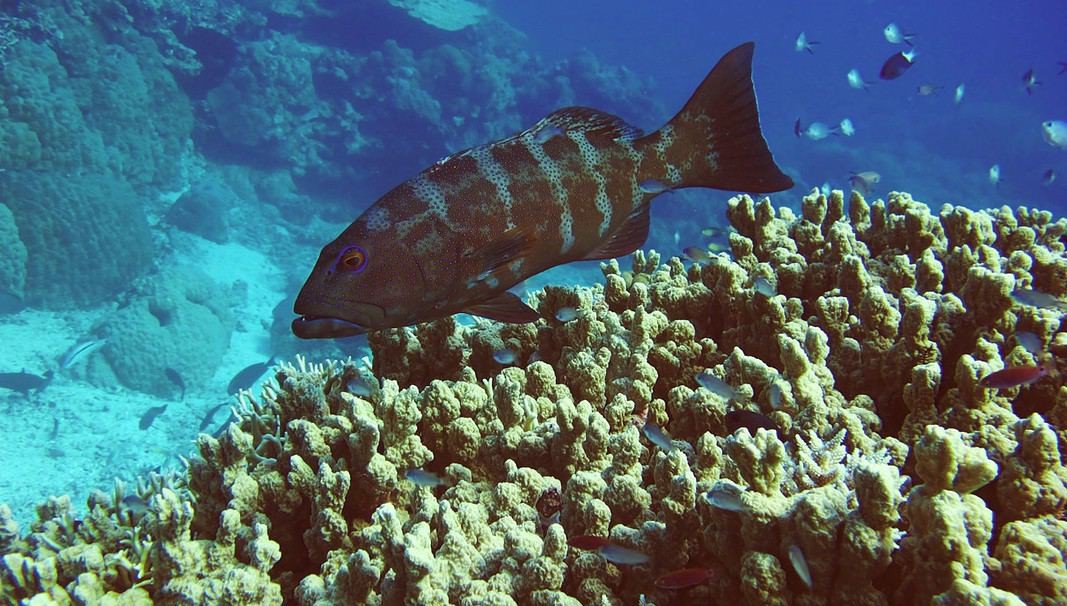While spearfishing can be an ecologically sustainable activity with minimal bycatch, restricting the activity via designated spearing-free management zones can have conservation benefits at a regional scale, Australian scientists have found.
Restricting spearfishing in some “yellow zones” in the Great Barrier Reef Marine Park has doubled the abundance of coral trout, according to new research led by James Cook University scientists.
The study, published in the journal Biological Conservation, focused on reefs around the Capricorn Bunkers, offshore from Gladstone, looking at the abundance of targeted fish species in partially protected Marine Park Zones known as “yellow zones.”
Researchers compared yellow zones that allow spearfishing to “special management area” yellow zones that prohibit spearfishing.
According to JCU scientist Dr. April Hall:
“What we found was in yellow zones that excluded spearfishing, the numbers of target species such as coral trout were significantly higher compared to fishing zones that allow spearfishing.
“These restricted yellow zones also rivalled the abundance in nearby protected no-take green zones.
“Regardless of the effects of spearfishing, both kinds of yellow zones still support a greater abundance of coral trout compared to nearby blue zones, where fishing is less restricted.”
Hall said while this study showed the conservation benefits of prohibiting spearfishing, it’s not necessarily the case across the entire Great Barrier Reef.
“We’ve compared other yellow zones in different parts of the Great Barrier Reef and the outcome varies, most likely due to differences in the popularity of spearfishing.”
Check out the study here.
New study: Prohibiting spearfishing boosts conservation outcomes for partially protected areas
April Hall et al. compared conservation outcomes for two different types of PPAs: both allowed limited line fishing, but only one prohibited spearfishing. @jcuhttps://t.co/PAp8DScYnv pic.twitter.com/eTpD0SXT9D
— ASFB (@AustSocFishBiol) August 15, 2022

